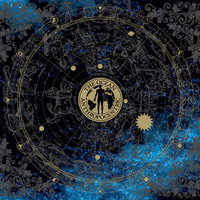| The Almightiness Contradiction (original) | The Almightiness Contradiction (traducción) |
|---|---|
| «Is God willing to prevent evil, but not able? | «¿Está Dios dispuesto a prevenir el mal, pero no puede? |
| Then he is not omnipotent. | Entonces el no es omnipotente. |
| Is he able, but not willing? | ¿Él puede, pero no está dispuesto? |
| Then he is malevolent. | Entonces es malévolo. |
| Is he both able and willing? | ¿Es capaz y dispuesto? |
| Then whence cometh evil? | Entonces, ¿de dónde viene el mal? |
| Is he neither able nor willing? | ¿No puede ni quiere? |
| Then why call him God?» | Entonces, ¿por qué llamarlo Dios?» |
| «If God is omniscient, he must already know how he is | «Si Dios es omnisciente, ya debe saber cómo es |
| going to intervene to change the course of history | va a intervenir para cambiar el curso de la historia |
| using his omnipotence. | usando su omnipotencia. |
| But that means he can’t change his mind about his | Pero eso significa que no puede cambiar de opinión sobre su |
| intervention which means he is not omnipotent» | intervención lo que significa que no es omnipotente» |
| If He knew it all | Si el lo supiera todo |
| If He knew everything there is to be known | Si supiera todo lo que hay que saber |
| Then that would mean that He would always know what to | Entonces eso significaría que Él siempre sabría qué hacer. |
| do next to change the course of history | hacer a continuación para cambiar el curso de la historia |
| He could choose to suspend the laws of nature | Podría elegir suspender las leyes de la naturaleza |
| He would always know the past and the future | Él siempre sabría el pasado y el futuro. |
| But this would make his own knowledge untrue | Pero esto haría que su propio conocimiento fuera falso. |
| For if He knew everything | Porque si lo supiera todo |
| He could not do anything different from what he knows | No podría hacer nada diferente a lo que sabe. |
| And even if he could hear our prayers | Y aunque pudiera escuchar nuestras oraciones |
| He could not encroach | No pudo invadir |
| There’s noone here who knows it all | No hay nadie aquí que lo sepa todo |
| There’s nothing there beyond the world we know | No hay nada más allá del mundo que conocemos |
| There’s noone here who knows it all | No hay nadie aquí que lo sepa todo |
| Is there something there beyond the world we know? | ¿Hay algo allí más allá del mundo que conocemos? |
| Christian morality has all the characters of a | La moral cristiana tiene todos los caracteres de una |
| reaction; | reacción; |
| it is, in great part, a protest against | es, en gran parte, una protesta contra |
| Paganism. | Paganismo. |
| Its ideal is negative rather than positive; | Su ideal es más negativo que positivo; |
| passive | pasivo |
| rather than action; | en lugar de acción; |
| innocence rather than Nobleness; | inocencia antes que nobleza; |
| Abstinence from Evil, rather than energetic Pursuit of | La abstinencia del mal, en lugar de la búsqueda enérgica de |
| Good: in its precepts (as has been well said) «thou | Bien: en sus preceptos (como bien se ha dicho) «tú |
| shalt not» predominates unduly over «thou shalt.» | no debes» predomina indebidamente sobre «deberás». |
Traducción de la letra de la canción The Almightiness Contradiction - The Ocean

Información de la canción En esta página puedes leer la letra de la canción The Almightiness Contradiction de -The Ocean
Canción del álbum: Anthropocentric
Fecha de lanzamiento:08.11.2010
Idioma de la canción:Inglés
Sello discográfico:Metal Blade Records
Seleccione el idioma al que desea traducir:
¡Escribe lo que piensas sobre la letra!
Otras canciones del artista:
| Nombre | Año |
|---|---|
| 2013 | |
| 2013 | |
| 2010 | |
| 2010 | |
| 2010 | |
| 2010 | |
| 2010 | |
| 2010 | |
| 2010 | |
| 2010 | |
| 2010 | |
| 2013 | |
| 2010 | |
| 2010 | |
| 2008 | |
| 2008 | |
| 2008 | |
| 2010 | |
| 2010 | |
| 2015 |